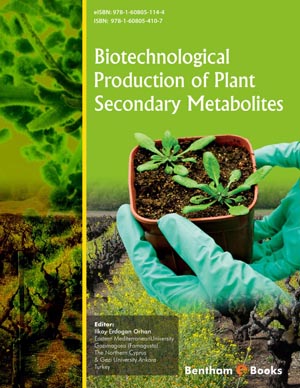Abstract
The controlled and uncontrolled use of pesticides along with unquestionable benefits can also affect other living organisms, including human beings and plant metabolism by causing abiotic stress in plants. Because possible effects on plants secondary metabolites are largely unknown, most researches focus on the influence of pesticides, their metabolism products, and residues on human health and environment. Other currently available data is related to effects of herbicides, fungicides, and plant growth regulators on phenylpropanoid and derived flavonoid metabolites as well as terpenoid metabolism.
Pesticides may influence levels of secondary metabolites like flavonoids, hydroxycinnamic acids, anthocyanins, tropane alkaloids, and volatile terpenoids by non-specific mechanisms or interfering the key biosynthesis steps. The quality of volatile oils can be altered by changing their chemical composition, especially the toxic or useful constituents. Moreover, pesticide residues can be solubilised in volatile oils. Also, pesticides are able to modulate plant metabolism affecting assimilation rate of micronutrients.
The complete assesment of plants exposed to pesticides requires knowledge of the biochemical and physiological responses of vegetal organisms to these substances in order to understand the magnitude of the agrochemicals action, but also for the rational engineering of plant secondary metabolites.
Keywords: Secondary metabolites, phytochemistry, pesticides, chemical composition, human health, environment, toxicity, herbicides, biosynthesis, fungicides, insecticides, plant growth regulators.






















